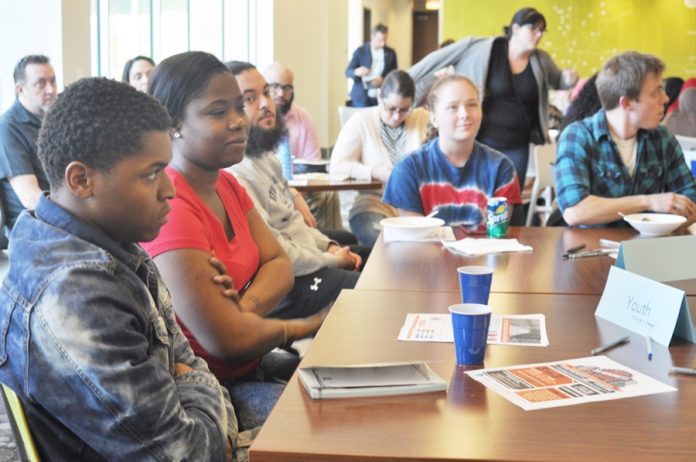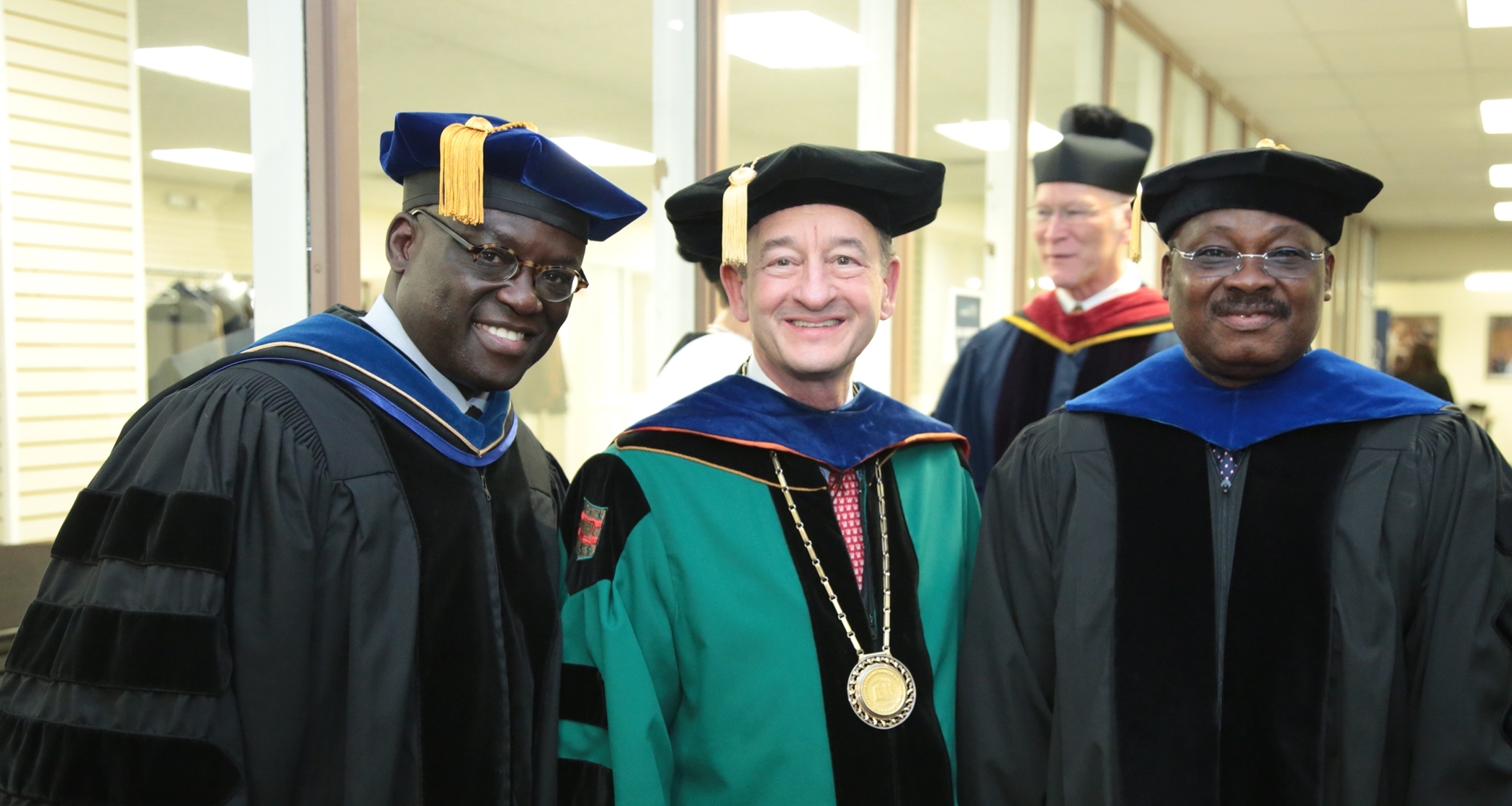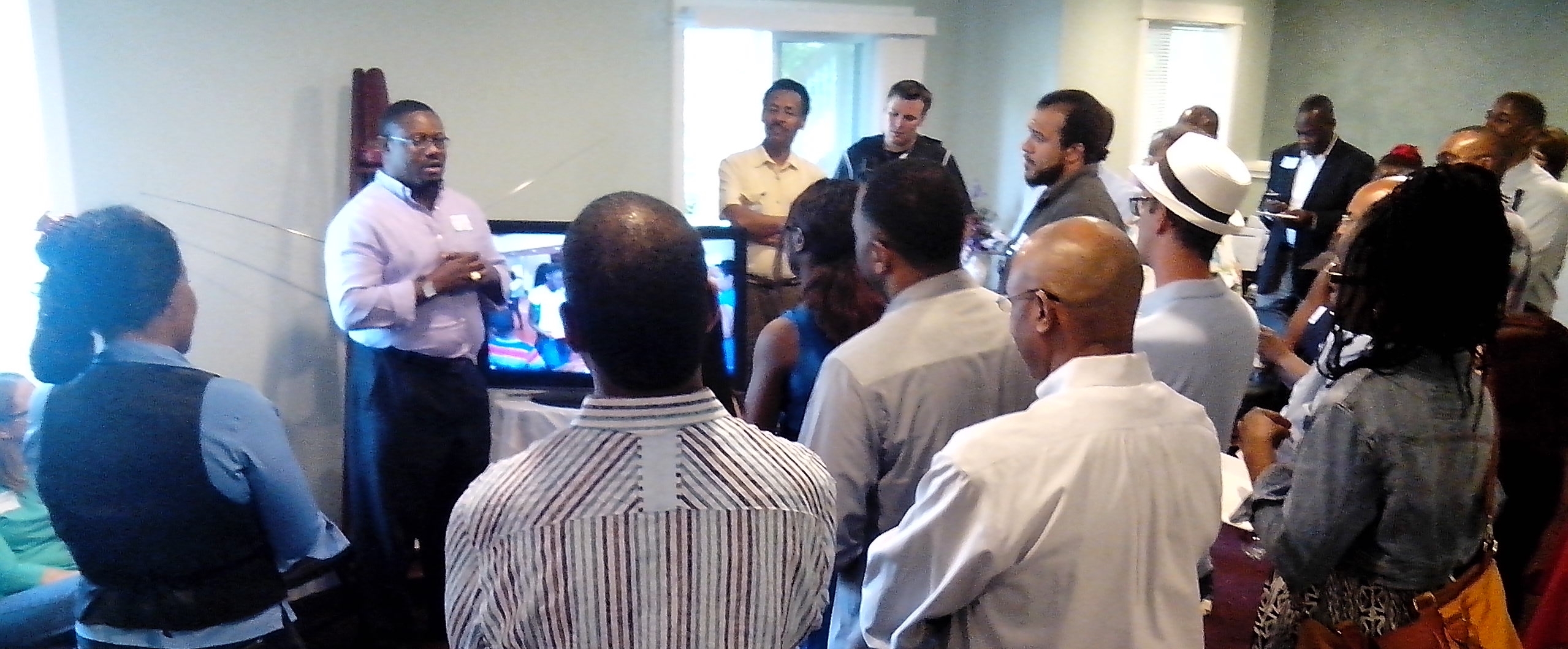By Issa A. Mansaray | The AfricaPaper
A workshop titled “What is Your Vision for Police in Schools?” was hosted by Students for Education Reform (SFER Minnesota) on April 17. The approximately 70 participants included students, parents, Minnesota Commissioner of Human Rights Kevin M. Lindsey, and representatives of Minneapolis Public Schools (MSP).
They gathered at the MPS Davis Center to voice both concerns and support for police in public schools, share their views about whether or not such policing is necessary, and question if it is solving or creating problems in the schools. Some of the participants said police presence wasn’t solving anything. Others pointed out the need to improve understanding between police and students, a concern which had prompted SFER to create the workshop.
Students shared firsthand experiences of interactions with police officers in their schools. Following general discussion, the workshop broke into small groups to generate ideas on how to resolve concerns about policing in schools.
SFER is partnering with Saint Paul Youth Services, Voices for Racial Justice, and the Dignity in Schools Campaign.Kenneth Eban, SFER MN program director, asked, “What [are the] things about police in schools we need to change for students to feel welcome, safe and achieving?”

He added that SFER wanted the community to help create concrete recommendations about how the state can improve relationships between students, the school districts, and local police departments. Participants questioned the need to collect data about students, questioning what type of data police should collect and why.
The question if police should be in schools in the first place sparked much discussion with a variety of answers. If police officers are allowed in schools, many felt this should be based on their qualifications just as schools regularly ask for teachers’ qualifications to meet students’ needs.
Eban said his agency wanted to listen and learn from the people, especially students most affected by the issues involving police presence in schools and why they are needed in an educational environment. The agency wanted recommendations not only from Minneapolis and St. Paul, but the entire state.

Halimah Abdullah, a student from St. Paul High School for Recording Arts, said she never had any problems with the presence of police officers in her school, but she was concerned with the way police treat other students, as well as for her safety concerning police officers with guns. She complained that sometimes police take student bags to search as if “such things are normal to anyone else.” She added, however, “They are there to protect us.”
Some haven’t experienced any police brutality. Brandonisha Frazier said she sees police officers everywhere and doesn’t have a problem with them. She noted that sometimes police treat students differently after school, based on a student’s negative behavior.
Frazier said the police in her school don’t carry Tasers or guns, but for many students that doesn’t matter. According to Frazier, police want students to be involved in what matters to their future – their education.
In an interview with MSR, Eban noted that they haven’t heard from the police, but SFER would like to have a conversation with the police departments considering recommendations gathered from students and the community.
He said the issue of police in schools is gaining public support. “School districts across Minnesota spend significant resources on police without any state standards, accountability, or oversight,” said Eban. “In many cases, students say a police presence escalates situations and creates a climate of fear. If our goal is student safety and achievement, we need to listen to our students and respond to a more positive approach that’s focused on them.”
Collin Robinson, a Southwest High student, said it was “despicable” for police officers to visit his school to interview students three days after a killing incident that involved police officers.
Speaking at the event, Commissioner Lindsey said he wants his department to ensure that everyone’s human rights are respected. “…People mistakenly believe that all actions happen at the legislature or state council… That is not actually where the action happens,” said Lindsey. “It happens in rooms like this, where you galvanize neighbor to neighbor, citizen to citizen, and student to student…to make change.”
According to SFER, law enforcement officers work in about 28 percent of Minnesota schools, “Yet there are no statewide standards for training, certification, protocol, or monitoring to guide how they work with students.”
Student Tavell D. Williams said he had a “terrible experience with a police officer.” Because Williams was asking so many questions, he was accused of being “disrespectful to a police officer.” Many are concerned that Student Resource Officers (SROs) or police in schools too often arrest students for conduct that could be simply solved by school administrators.
Eban noted, “Arrests interfere with education. A student who goes to court is more likely to drop out of school. Both the National Association of School Resource Officers and Minnesota Department of Public Safety agree that officers should not be involved in classroom management or school discipline, but there’s no state policy to that effect.”
A statewide survey of School Resource Officers concluded that 22 percent of Minnesota SROs say they spend too much time enforcing school rules. |TAP| Africa’s Newspaper of Record.











































